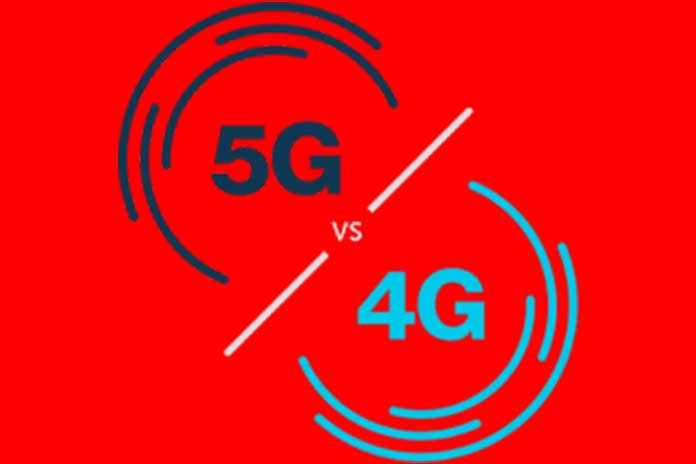What Is 5G?
5G, whose official name is IMT-2020, is the fifth generation of standards for mobile telephony. It is characterized by its speed, low latency, and ability to connect many objects. It was developed to “avoid the saturation of the networks announced in 2022 and make it possible to track things at high speed, which 4G is not capable of.
What Dangers With 5G?
5G is debated because of the level of electromagnetic waves emitted, which could impact the health of users. “15% of smartphones tested are above the threshold of 2 watts per kilogram. And we do not yet know the consequences of millimeter bands on the human body”.
What Are The Differences Between 4G And 5G?
5G promises increased performance compared to 4G:
- The volume of data transmitted is multiplied by 100. Future 5G networks will theoretically be able to transfer 20 gigabits of data per second, from a base station to a device connected to the network, and 10 gigabits per second in the reverse direction
- Speeds up to 3 to 4 times faster than 4G ( see our Internet speed test )
- Latency should be less than one millisecond, compared to 25 to 40 milliseconds for 4G.
Future 5G users in the general public will download a movie in high definition in two or three seconds.
How Does 5G Work?
This fifth-generation mobile communication technology will soon take over from 4G + (or LTE advanced) to allow mobile devices – whether smartphones, tablets, or connected objects – to send and receive messages—data in large quantities.
5G needs frequencies in three frequency bands to provide comprehensive coverage, namely:
- The 700 and 800 MHz frequency bands. These are used to provide comprehensive coverage of urban areas and provide IoT services in LTE-M and NB-IoT.
- The frequency band between 3.4 and 3.8 GHz, necessary for the capacity of 5G and the first industrial uses
- Millimeter waves at 26 GHz in France, essential to achieve the high speeds promised.
One-stop-shop for open platforms for experimentation in the 5G 26 GHz band, called the “millimeter” band, was launched in January 2019. Eleven project leaders will have the frequency bands of 26 GHz by 1 January 2021, prices of 200 euros per year and per 200 MHz block for three years.
What Will Change With 5G?
5G promises speed, low latency, low power consumption and allows many users to be connected simultaneously. With this communication standard, users in the general public will download high-speed videos in record time. “There are four different uses for 5G: broadband, the first case currently being developed as a continuation of 4G for which we are anticipating new services linked to augmented reality. wireless access, which will replace fiber, the management of many connected objects, and the communication of industrial machines. ”
5G is one of the most anticipated technologies in the autonomous vehicle sector because cars must instantly send images of their environment to processing software, for example, located in the cloud, and make a decision immediately. A slight second delay in sending data could cause an accident. This reduction in latency could also allow surgical operations to be performed remotely, for example, because the movements of the instruments will be sufficiently fluid.
The deployment of 5G followed the auction for the allocation to French operators of eleven blocks of 5G frequencies in the band between 3.4 and 3.8 GHz. These ended after three days, the 1st October 2020 in France. The operation brought in nearly 2.8 billion euros to the state. The final price per block came out at 126 million euros after 17 rounds of auction. By comparison, auctions brought 6.55 billion to the state after three months and 6.5 billion euros in Italy after 14 days. With four blocks,
Which Smartphones Are Compatible With 5G?
The deployment of 5G is an opportunity for smartphone manufacturers to present their new models. Because to take advantage of this new generation of standards for mobile telephony, users must acquire compatible devices. Most manufacturers have a model that works with 5G.
In 2021, more than 500 million 5G phones were sold, according to Qualcomm, and 750 million should be in 2022. About fifty 5G compatible smartphones are available on the market.
Which smartphones are compatible with 5G?MarkModel
Apple 12, Apple 12 Pro, Apple 12 Pro Max, Apple 12 mini, Archos X67 5G, Asus Rog Phone, Google Pixel 5, Huawei P40, Huawei P40 Pro, Huawei P40 Lite 5G, Huawei Mate 40 Pro, Motorola Edge , Nokia 8.3 5G, Oneplus 8, Oneplus 8 Pro, Oneplus North N10 5G, Oneplus 8T, Oppo Find X2 Pro, Oppo X2 Neo, Oppo Reno 4Z, Oppo Find X3 Lite, Oppo Reno 4 Pro, Realme X50, Realme X50 Pro, Redmi Note 9T, Redmi Note 10 5G, Samsung Galaxy s10, Samsung Galaxy s20, Samsung Galaxy s20 plus, Samsung Galaxy S20 Ultra, Samsung Galaxy s21, Samsung Galaxy s21 plus, Samsung Galaxy S21 Ultra, Samsung S20 FE 5G, Samsung Galaxy A42 5G, Samsung Galaxy A51 5G, Samsung Galaxy A32 5G, Samsung Galaxy z fold 2, Samsung Galaxy note20, Samsung Galaxy Note20 Ultra, Sony Xperia 1 II, Sony Xperia 5, Vivo X51 5G, Xiaomi Mid 10, Xiaomi Mi 10 Lite 5G, Xiaomi Mi 10 T, Xiaomi Mi 10 T Pro, Xiaomi Mid 11.


